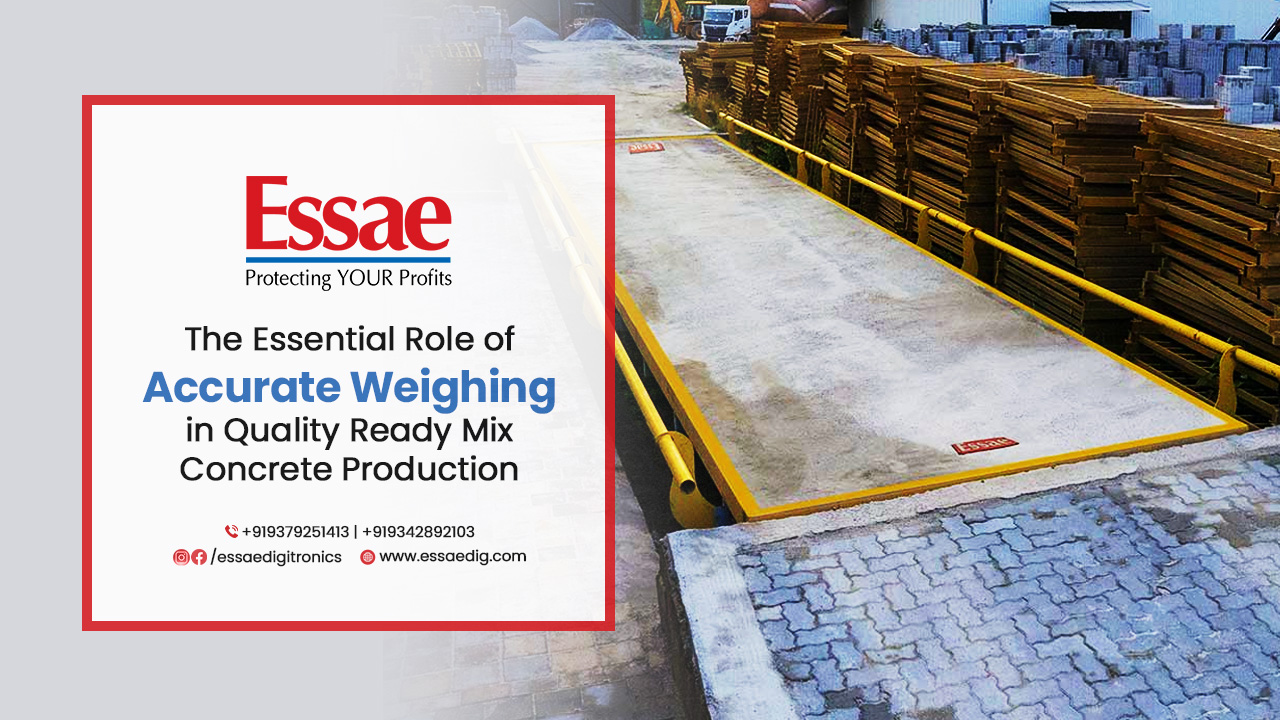
The 5 Essential Role of Accurate Weighing in Quality Ready-Mix Concrete Production

- May 2024
- The 5 Essential Role of Accurate Weighing in Quality Ready-Mix Concrete Production
Ready-Mix Concrete (RMC) is a specialised material prepared away from the construction site and transported to the place of construction. RMC is produced under factory conditions and is useful in congested sites where procurement, storage, and handling of concrete materials are difficult.
RMC industry uses cement, metal, sand, and water in the right proportion for use in construction sites. Accurate weighing of raw materials helps in ensuring the quality and performance of the final product.
Importance of Accuracy in Weighing:
Only accurate measurements can maintain the structural integrity of buildings, bridges, and other structures. Inaccurate measurements compromise the safety of the structure.
Optimising Resources: Precision in weighing helps with the overutilization or underutilization of resources. It helps optimise costs and minimize waste. Compliance: Transport authorities stipulate the weight of raw materials that can be transported at a time. Accuracy in weighing helps ensure compliance with such laws.
Inventory Management: Accuracy in weighing helps in maintaining inventory at optimum levels. It ensures that suppliers deliver the correct quantity, ensuring trust and transparency in transactions.
Efficient Logistics: In the Ready Mix Concrete industry, properly weighed loads help improve efficiency in logistics operations by reducing fuel consumption and reducing wear and tear on vehicles.
Quality standards: Certain raw materials, such as aggregates and cement aggregates, have weight specifications to ensure quality standards. Accuracy in weighing ensures such standards are adhered to. Accurate proportioning and weighing of materials have to be ensured before they are put on the concrete mixer. Most Ready Mix plants rely on load cells, and all load cells should be of the same capacity.
The Weighing Process
Different procedures can be adopted to ensure consistent and high-quality concrete. Weigh batching and volume batching are adopted in the RMC industry. Load cells are installed in the batching plant to measure the weight of the ingredients. Cement and fly ash are stored in silos. Computerized batching weighs the materials before they are placed in the mixer. Conveyors are used to transport the aggregates. Volume batching, which was used in the past, is now less common. This process involves measuring ingredients by volume (using buckets and containers). However, this is prone to inaccuracy.
Continuous-weighing systems are used in large RMC plants. It ensures continuous measurement of the flow rate of materials as they enter the mixer. The flow rate is converted into weight using load cells. This ensures a steady supply of materials during the mixing process. Advanced RMC plants may utilise adaptive control systems. Here, the mix proportions are achieved dynamically based on real-time measurements.
In short, it can be understood that for the production of consistent, high-quality concrete in the RMC industry, irrespective of the weighing procedures followed, precise measurements contribute to the safety and durability of structures.
Essae Digitronics is a leading manufacturer of weighbridges in India, with over +16000 installations. The company manufactures a wide range of weighbridge products and weighbridge solutions for the construction, logistics, manufacturing, mining, and road transport industries.




